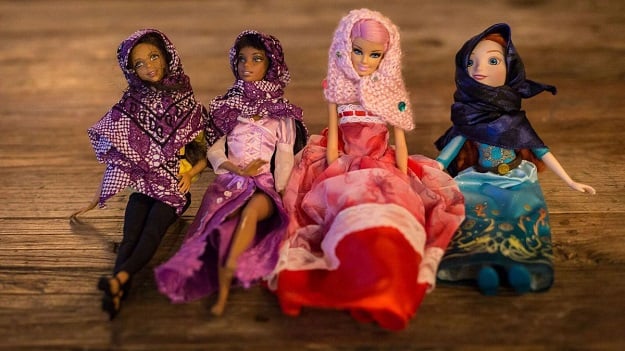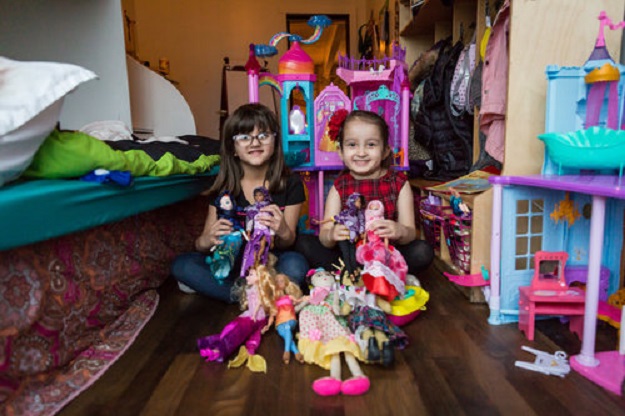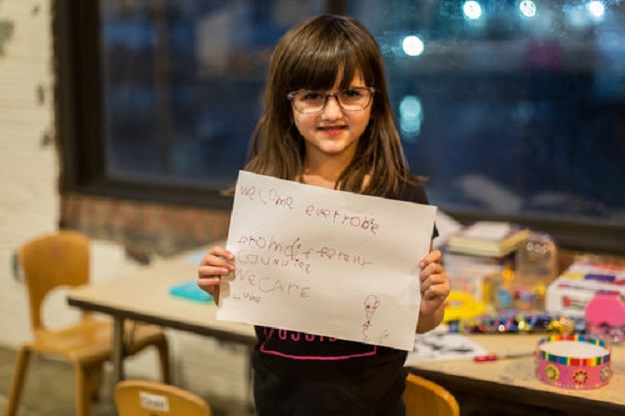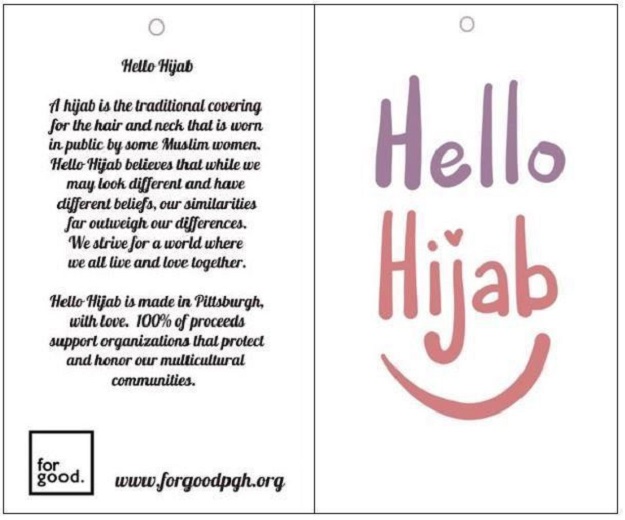
Safaa Bokhari of Oakland, Pennsylvania and her friend Gisele Fetterman have teamed up with Pittsburgh non-profit organisation For Good for the Hello Hijab initiative, which will create tiny headscarves as accessories for Barbie and other dolls.
Nike unveils Pro Hijab for Muslim athletes
According to the official website "Hello Hijab believes that while we may look different and have different beliefs, our similarities far outweigh our differences. We strive for a world where we all live and love together."
Speaking to The Huffinton Post, Bokhari said she hopes the “Hello Hijab will be used by both Muslims and non-Muslims, so that children get used to the sight of women wearing the headscarf.”
 Salma Bokhari, age 5, and Grace Fetterman, also age 5, play with Graces dolls. Hello Hijab. PHOTO: HELLO HIJAB
Salma Bokhari, age 5, and Grace Fetterman, also age 5, play with Graces dolls. Hello Hijab. PHOTO: HELLO HIJAB“The idea of kids and girls playing with the hijab and the hijab becoming something usual, I think it will make a difference in the future,” Bokhari told the newspaper. “It won’t be a problem for my daughter, if she wants to wear hijab, it wouldn’t be considered something strange.”
Seeing how fond their five-year-old daughters were of playing with dolls, Fetterman envisioned making “doll-sized” headscarves and using the profit for charity organisations like the Islamic Centre of Pittsburg and the American Civil Liberties Union, the Post reported. She hopes that every school and day-care will have dolls that look like Muslim women.
 Grace Fetterman, age 5, holds a sign she made reading a simple, but sincere message: "Welcome everyone from different countries. We care. Love." The child of a once-undocumented immigrant, Grace has grown up learning to accept and love people regardless of their origin. PHOTO: HELLO HIJAB
Grace Fetterman, age 5, holds a sign she made reading a simple, but sincere message: "Welcome everyone from different countries. We care. Love." The child of a once-undocumented immigrant, Grace has grown up learning to accept and love people regardless of their origin. PHOTO: HELLO HIJABThe website confirms their commitment to charity with: "Hello Hijab is made in Pittsburgh, with love. 100% of proceeds support organisations that protect and honour our multicultural communities."
“I want little girls to see their mothers in these dolls, for kids all over the world to play them. I want American kids to become familiar with hijabs,” Fetterman said.
Bokhari was happy to be involved in the project. “I was very happy because, you know, you can’t be creative if you’re scared,” the Post quoted her. The 30-year-old mother, who faced verbal harassment for her Abaya and veil when she moved to the US from Saudi Arabia in 2013, is focused to not let her daughter go through the same if she chooses to adorn headscarf.
Muslim teen barred from basketball game because of her hijab
In 2016, Bokhari decided to give up abaya and veil to opt for a headscarf. “Even the scarf is becoming a problem now,” Bokhari told the news daily. “I feel scared all the time, to be honest.”
“If it gets the goal that I want for my daughter, it’s okay with me,” she further added. “The idea of the project is just that people get used to the hijab so that it can become easier for women to wear it.”
Debuting on April 1, the scarves will be sold for US$6 each. They will be accompanied by a card educating people about the importance of Hijab to Muslim women who decide to do it and emphasising on the celebration of diverse choices.
 The card. PHOTO: HELLO HIJAB
The card. PHOTO: HELLO HIJAB




1731578852-0/diddy-(41)1731578852-0-165x106.webp)



1731577079-0/Untitled-design-(9)1731577079-0-270x192.webp)
1731571819-0/Copy-of-Untitled-(40)1731571819-0-270x192.webp)







COMMENTS
Comments are moderated and generally will be posted if they are on-topic and not abusive.
For more information, please see our Comments FAQ